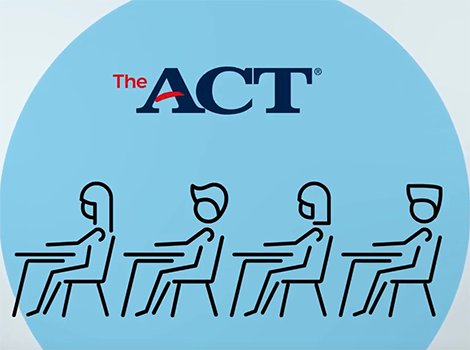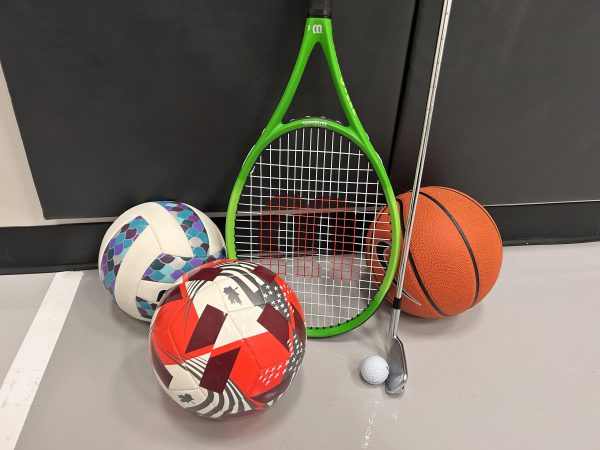The ACT through the lens of the BSM community

The ACT through the eyes of BSM students and their different views.
Four hours of pure focus. Four sections to test your abilities in English, math, reading, and science: the dreaded ACT test. This standardized test used for college admissions occupies a lengthy amount of time during junior year of high school. At BSM, students are provided with a great foundation of study materials for the test.
The ACT preparatory class, taught by Juno Nayagam, is a fundamental class for students to get a feel for what the test is all about. A longstanding question has revolved around the hours you need to put into studying for this standardized test. As an expert in test-prep, Nayagam understands the correlation between study efforts and a good score. “The most successful ACT test takers practice, practice, practice! You should plan on completing at least three full practice ACT tests under timed conditions. In fact, I’d say three practice tests is the minimum if you want to score well on the real exam. If you’re serious about doing well on the ACT, you should start preparing for it 3-6 months before your test date. Just like any other exam, you will do better and feel more confident if you are prepared,” Nayagam said.
Many students seek beneficial tactics to help them succeed on their test. Methods like the process of elimination or choosing what bubbles to fill out when the clock is ticking down are all factors that have the potential to increase your score. Once students begin to recognize patterns and discover tricks alone, their score is likely to improve.
Covid-19 has presented unforeseen circumstances, including an option for colleges and universities to go test-optional. Current seniors and class of 2021 seniors have chosen this route if they feel their application would reflect themselves better without an ACT score. There is a lot of debate surrounding the decision to submit a score or not. Showcasing a good score is impressive to a college board, but ultimately, your ACT score doesn’t outweigh the rest of your application. “It depends on how well you do on the exam. If your ACT score is high, I think it might help your chances, especially if you are on the “bubble” with the admissions committee,” Nayagam said.
BSM senior Emerson Foley is submitting his ACT score to prestigious universities such as Notre Dame, Villanova, and Vanderbilt. He believes the test does a superb job showing how well a student can reason under pressure. Foley also believes it shows a different side of a student that your GPA and extracurriculars don’t show. Foley took the standardized test two times and saw a six point increase, putting him at a final score that reflected his hard work and efforts. Between his first time and last time taking the test, he met with a tutor and took a practice test every week. “The first time I took the ACT I didn’t prepare at all. The only thing I did was review a few math equations. For the second time I took the test, I spent 7 weeks preparing for the ACT,” Foley said.
The first time I took the ACT I didn’t prepare at all. The only thing I did was review a few math equations. For the second time I took the test, I spent 7 weeks preparing for the ACT
— Foley
Contrary to Foley’s opinion about the ACT, senior Patrick Mullin believes the ACT does a poor job reflecting someone’s academic abilities, as someone can be great under pressure, but others not so much. Mullin took the test twice and improved the second time, using the Official ACT Guide as a tool to succeed. With different learning styles and techniques, Mullin finds it beneficial to have the opportunity to refrain from sending your test score. “[While] I think that having the option to submit a test score is great, I don’t think the ACT/SAT are a good measure of someone’s academic worth – some people are good test takers and some aren’t. Plus, you might want to submit your score to one school, but not another,” Mullin said.
It goes without saying that junior year is hectic. However, BSM offers resources to make the process go as smoothly as possible. Whether you hire a private tutor or study alone, being prepared is the key to scoring well on this test. The more you study, the more tips and tricks you will discover, which can be a beneficial tool for many students.
















































